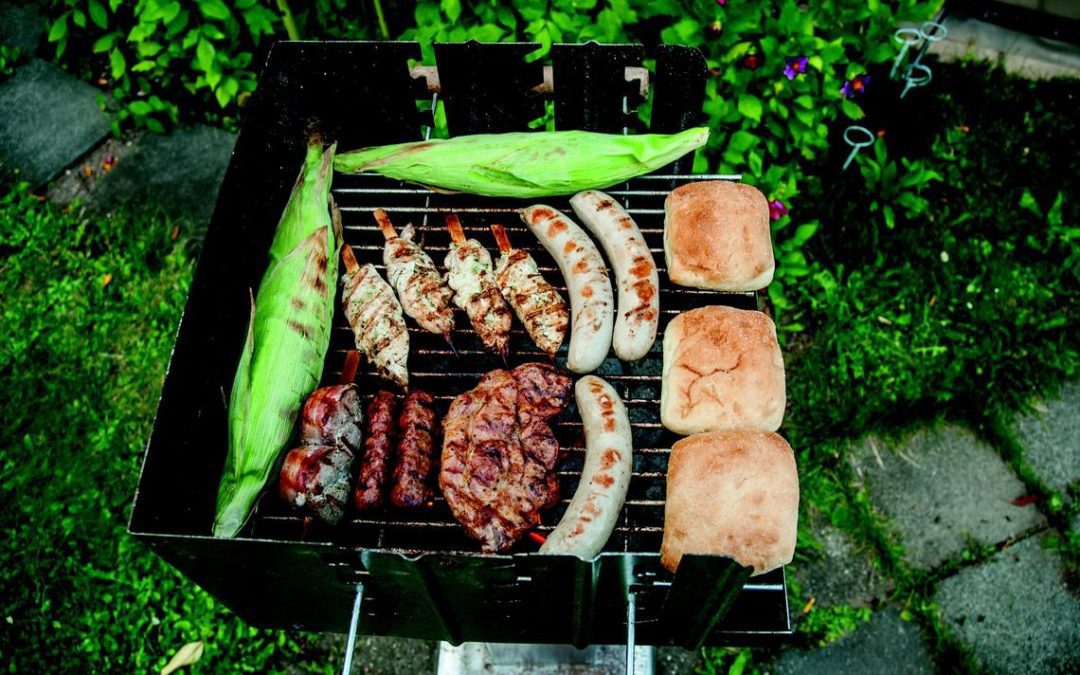A “sexual act on an animal” grossly misrepresents farm and ranch practices that assist animal reproduction or check on animal’s reproductive organs. This is the direct work of animal rights activists who want to destroy animal agriculture and the production of food animals.
The proposed initiative also requires cows, hogs and other livestock to live at least 25% of their natural lives before slaughter. The ballot measures define lifespans as 20 years for a cow, 15 for a pig, 8 for a chicken and 6 for a rabbit.
The proposed initiative was given the go-ahead in March to collect 124,632 signatures of registered Colorado voters to be listed on the ballot.
No matter where you live, agriculture drives jobs and economies. What happens to Colorado agriculture impacts all of us. In Colorado, agriculture contributes $40 billion in economic activity and 170,000 jobs. Beef, both fresh and frozen, is the No. 1 exported product from Colorado, contributing more than $1 billion in 2018, according to the Colorado Livestock Association.
The beef industry is more sustainable and technologically advanced than ever before, raising the same amount of beef compared to 1975 with 36% fewer cattle. According to the U.S. Environmental Protection Agency’s greenhouse gas emissions inventory, beef cattle account for 2% of U.S. greenhouse gas emissions versus 28% from transportation. For greater impact, Coloradoans should spend time and money on efforts and campaigns to encourage carpooling, riding bicycles and public transportation, rather than attack the ranchers who feed them.
Wherever you reside, agriculture most likely drives a portion of your economy. At the very least, agriculture feeds you and your family. American food animals also supply the growing demand for protein globally. As the global population rises and advances, demand for protein does as well. As a result, there’s a growing need for feedstuffs, such as alfalfa, corn and soybeans. Additionally, U.S. farmers grow human protein sources such as food-grade soybeans, dry beans and pulse crops, such as lentils and field peas.
I am pro-food choice. I am pro-farmer and rancher. Colorado’s proposed ballot initiative shook me back to reality after I naively expected people to have more respect for where their food originates after finding our way through COVID-19 and the changes in our food system.
Who really wants to eat a veggie burger over a beef patty for the rest of their life? Based on 24 polls in 2019, 1% to 2% of Americans identify as vegan and around 5% are vegetarian, a number that has remained the same since around 2012.
That means 93% of us desire a variety of meat choices.
Have you ever heard the popular saying in politics, “As goes California, so goes the nation,” or “As goes Maine, so goes the nation,” referring to the bellwether states of presidential elections? “As goes Colorado agriculture, so goes American agriculture” hits close to home. Watch. Listen. Learn. We’ve been discussing and preparing for decades to bridge the disconnect between production agriculture — less than 2% of the U.S. population — and non-ag consumers. Frankly, I thought we’d be farther along than we are. This Colorado ballot initiative is a more significant threat than past ballot initiatives pushed by The Humane Society of the United States.
An agriculture-rich state, Colorado elected a tech millionaire, Jared Polis, in 2018 as its governor. While Polis is a meat-eater, his partner, first gentlemen Marlon Reis, is an animal rights activist and advocates veganism. In 2019, Polis sent Burger King Impossible burgers to the Colorado Department of Agriculture staff to encourage more research into plant proteins. He didn’t send a variety of Burger King sandwiches to promote food choices. The anti-meat agenda was set.
Polis deemed March 20, 2021, as “Meat Out Day” in Colorado. The livestock industry responded by celebrating Meat In Day. While I saw many people change their social media profile pictures or post pictures of eating meat in support of Meat In Day, this is not enough to change the dynamics.
Who you vote for matters in every single election. Who you slate as candidates matter. Get involved in your political party of choice at the district level. Agriculture needs representation, not only from farmers and ranchers but from those willing to fight for and defend food choices in America and beyond our borders.
Regardless of your zip code, anyone who likes to grill quality meat and eat a great steak should watch what’s unfolding in Colorado. Don’t be naïve enough to sit back and think this sort of attack on agriculture can’t happen in your county or state. Get your agriculture counterparts and a team ready. Stand up, advocate and vote for food choices. Whatever you do, don’t allow an animal rights activist to mislead you and talk you into signing your name in support of an anti-agriculture cause.
This column does not necessarily reflect the opinion of this publication nor Forum Communications ownership. Pinke is the publisher and general manager of Agweek. She can be reached at kpinke@agweek.com, or connect with her on Twitter @katpinke.
This content was originally published here.

